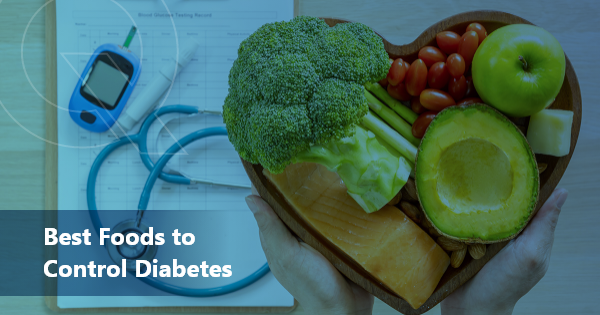Managing diabetes involves making smart food choices to help control blood sugar levels and reduce the risk of complications. Including nutrient-rich foods in your diet can play a significant role in managing diabetes effectively. Here are ten healthy foods that are perfect for diabetics:
Non-Starchy Vegetables:
Non-starchy vegetables such as leafy greens (spinach, kale, lettuce), broccoli, cauliflower, cucumbers, and bell peppers are low in calories and carbohydrates but high in fiber, vitamins, and minerals. They help regulate blood sugar levels and promote overall health.
Whole Grains:
Whole grains like oats, barley, quinoa, brown rice, and whole wheat are rich in fiber, which slows down the absorption of sugar into the bloodstream and helps control blood sugar levels. They also provide essential nutrients like magnesium, chromium, and B vitamins.
Beans and Legumes:
Beans and legumes such as lentils, chickpeas, black beans, and kidney beans are high in fiber and protein and have a low glycemic index. They help stabilize blood sugar levels, reduce insulin resistance, and lower the risk of heart disease.
Fatty Fish:
Fatty fish like salmon, mackerel, trout, and sardines are rich in omega-3 fatty acids, which have anti-inflammatory properties and help reduce the risk of heart disease. They also improve insulin sensitivity and lower triglyceride levels.
Nuts and Seeds:
Nuts like almonds, walnuts, and pistachios, and seeds like chia seeds and flaxseeds, are rich in healthy fats, protein, fiber, vitamins, and minerals. They help improve blood sugar control, reduce inflammation, and lower the risk of heart disease.
Greek Yogurt:
Greek yogurt is high in protein and low in carbohydrates, making it an excellent choice for people with diabetes. It also contains probiotics, which support gut health and may improve blood sugar control.
Berries:
Berries such as strawberries, blueberries, raspberries, and blackberries are low in calories and carbohydrates but high in fiber, vitamins, minerals, and antioxidants. They help improve blood sugar control, reduce inflammation, and lower the risk of heart disease.
Tomatoes:
Tomatoes are low in calories and carbohydrates but high in fiber, vitamins, minerals, and antioxidants. They have a low glycemic index and may help improve blood sugar control and reduce the risk of heart disease in people with diabetes.
Sweet Potatoes:
Sweet potatoes are high in fiber, vitamins, and minerals, including beta-carotene, vitamin C, and potassium. They have a lower glycemic index than white potatoes, which means they cause a slower rise in blood sugar levels.
Cinnamon:
Cinnamon is a spice that has been shown to improve insulin sensitivity and reduce blood sugar levels in people with diabetes. Adding cinnamon to foods and beverages may help improve blood sugar control and reduce the risk of complications.
Incorporating these healthy, nutrient-rich foods into your diet can help you better manage your diabetes and reduce the risk of complications.
Remember to also monitor your carbohydrate intake, portion sizes, and overall calorie intake, and consult with a healthcare professional or registered dietitian for personalized dietary advice.
